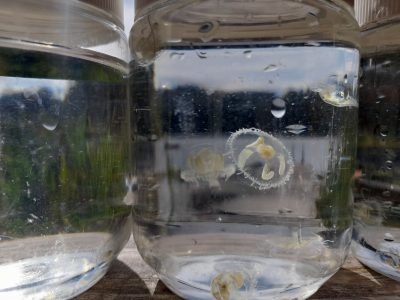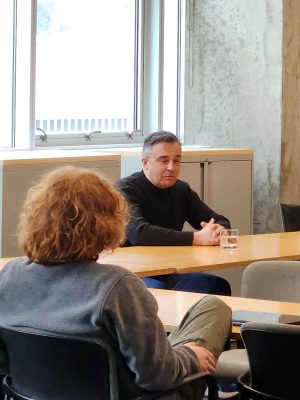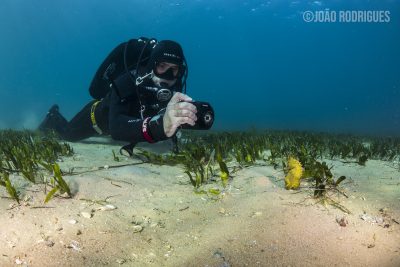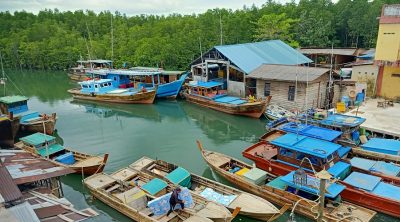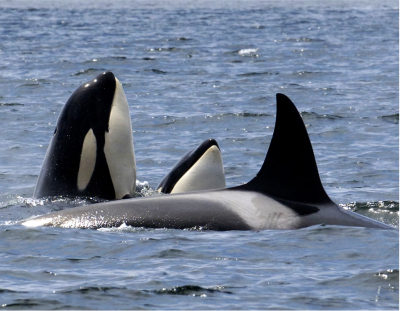Thousands of jellyfish clones are multiplying in B.C. lakes
An invasive, freshwater jellyfish is popping up in B.C. waters in the thousands – up to 34 places so far – and future sightings could increase rapidly by the end of the decade as climate change extends this range.
Pelagic Ecosystems Lab wins BC Conservation & Biodiversity Award
The award will fund a project to provide high resolution zooplankton biodiversity data by integrating eDNA, and the Zooscan imaging system, to establish a biodiversity benchmark for the wider BC coast.
MP Mike Kelloway visits IOF
Mike Kelloway is federal Parliamentary Secretary to the Minister of Fisheries, Oceans and the Canadian Coast Guard
Citizen scientists contribute vital information about 35 seahorse species: their geographic ranges, habitats, and pregnancy seasonality
Thanks to diligent observers, seahorses, those enigmatic and charismatic fish, are not only being discovered in new habitats and expanded geographic ranges, they are also being found at new ocean depths. While their capacity for male pregnancy has long fascinated people, new information on sex ratio and pregnancy seasonality has been discovered by, well, you. […]
Dr. Marie Auger-Méthé receives UBC’s Charles A. McDowell Award for Excellence in Research
This award recognizes demonstrated excellence in pure or applied scientific research by a young faculty member.
Unilateral efforts to combat illegal fishing may spur piracy in certain regions
Certain policies and policing measures taken by countries to combat illegal, unreported and unregulated (IUU) fishing drive local actors to engage in piracy, new Sea Around Us research has found.
Dr. Rashid Sumaila among 2023’s top most influential Africans
This UBC prof is making waves worldwide in sustainable ocean resource management
Toxic chemicals found in oil spills and wildfire smoke detected in killer whales
Toxic chemicals produced from oil emissions and wildfire smoke have been found in muscle and liver samples from Southern Resident killer whales and Bigg’s killer whales.
Your local sea snail might not make it in warmer oceans – but oysters will
The frilled dog winkle may sound like a complex knot for a tie, but this local sea snail holds clues to our warmer future, including a dire outlook for species that can’t move, adapt, or acclimate as fast as their environment heats up.
UN climate conference should not be ‘business as usual’, say climate experts
Climate experts are looking for action on finance and renewable energy goals at the United Nations climate change conference, including the 28th Conference of Parties (COP).
